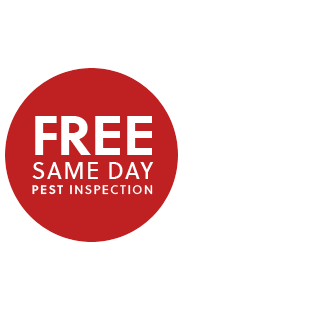What is the number-one rodent pest?
What is the most problematic rodent species in the United States? The answer won’t surprise most people.
House mice are the most problematic rodents that pest control professionals and homeowners contend with, according to a survey in the 2022 State of the Rodent Market Report from industry trade magazine Pest Control Technology.
Seventy-five percent (75%) of survey respondents said mice outpaced rats as the most problematic rodent that threatens consumers. The report also asked pest control professionals if rodent infestations had increased in their markets. Forty-two percent (42%) said that house mice infestations increased over the past year.
Mice are pests of opportunity
Mice are opportunists when it comes to invading a home in search of food or shelter. Surprisingly, water is not high on the list of their attractants, as mice need less water to survive than rats. Mice will wait patiently to identify the easiest route to accessing your home, whether it’s through a dime-size hole in walls, floors, or foundation, or a gap under a door.
Because mice carry and transmit viruses, bacteria, and other disease pathogens, they are troublesome pests. Mice are commonly responsible for causing damage to personal property – they can gnaw on electrical or computer wiring, which can increase the chance of an electrical fire.
Mice also can contaminate surfaces and food sources within homes. Hantavirus is a particular threat associated with such rodents as deer mice. The virus is contracted with inhalation of particles released when mouse droppings, urine, and saliva are disturbed.
Where will you find a mouse in your house? Nesting areas may be found in drawers, shoeboxes, storage boxes, wall voids, and stored camping equipment, under cabinets, and in other seldom-accessed areas in crawlspaces, closets, or garages.
The most obvious sign of mice is their fecal droppings. These droppings are usually concentrated near breeding and nesting grounds, although they may also be seen in other areas of the house from time to time. Unexplained gnaw marks on boxes and packaging are another sign that mice may be present. Inhabitants of homes with a mouse infestation may hear noises at night and smell mouse urine in areas with poor ventilation.
Mouse-proofing 101
Even though mice are crafty creatures, do not despair. There are proactive measures you can take to keep them out. Clark Pest Control offers the following mouse-proofing tips to help keep mice out of your house:
- Keep rodents out with physical barriers by installing door sweeps and screens on doors and windows.
- Block gaps around utility pipes and wires with rodent-control fill fabric; mice only need a quarter-inch opening to get inside.
- Block and seal any holes in the foundation and walls.
- Seal vents and access points along the roof line, eaves, and attic.
- Eliminate clutter in garages or storage areas.
- Don’t leave pet food bowls unattended or out overnight.
- Store dried bulk foods, pet food, and birdseed in sealed plastic containers.
- Store garbage and recycling receptacles away from the home and keep them securely covered.
Rodent prevention solutions from Clark Pest Control
If you and/or your neighbors have seen mice or signs of mouse activity around your home, call or text (800) WE-NEED-YOU (936-3339) or email us at clarkcares@clarkpest.com. We can answer your rodent questions and design a customized control program that works best for you.
Until next time, the pest management professionals at Clark Pest Control thank you for helping to keep unwanted pests out of your home and yard.


